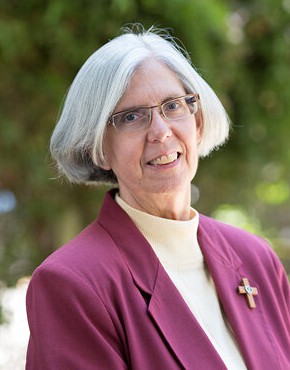
Marianne Farina, CSC
Courses Taught
- Friendship and the Moral Life (PHCE 4200)
- Religion and Peacebuilding (PHCE 4961)
- Catholic Social Teaching (CE-3050)
- Christian-Muslim Dialogue (HRST-2083)
- Islamic Philosophy (HRPH 4832)
- Roman Catholic Sexual Ethics (CE-2003)
- Theological Virtues (CE 2219)
- Faith in Human Rights (PHCE-4960)
- Agents of Transformation (ST-4047)
- Western Social Thought II (RSCE-5003)
- Indonesia Theological Immersion (STRS-4217)
- Professions of Faith (ST-4141)
- Personhood and Human Rights (PHCE 4950)
- Virtue Theory: Islam and Christianity (PHCE 4830)
Recent Publications
- “Comparative Theology: The Experiences with Islam” in Companion to Comparative Theology edited by Wilhelmus GBM Valkenberg, Leiden, Netherlands, Brill Publishers, 2022.
- “Follow the Women: Freeing Dialogue” in Berkeley Journal of Religion and Theology, Graduate Theological Union, Berkeley, CA (Fall) 2019.
- “A Common Word as Contextual Theology,” The Future of Interfaith Dialogue edited by Yazid Said and Lejla Demiri. London, UK: Cambridge University Press, 2018
- Sacred Conversations and the Evolution of Dialogue. Mahwah, NJ: Paulist Press, 2017.
From the Professor
I want to inspire students to engage in theological/philosophical study and discourse on the critical topics facing today's global communities. I guide them to find resources for further explorations and to develop the skills necessary to share knowledge with others. My teaching style includes lectures and seminar discussion. In my teaching, research, and pastoral ministry I want to promote dialogue.
I believe that “the synonym for dialogue is learning.” Through (dia) our exchange of words (logos) we can deepen knowledge of ourselves and others. Dialogue helps us to think critically and engage with the realities of others holistically. Critical to these dialogues is the commitment to conversation with various groups as outlined in Paul VI's first encyclical Ecclesiam Suam. Pope Paul VI identifies four circles of dialogue: among Catholics, with other Christians, with world religions, and the civil society. Each dialogue supports the other and strengthens relationships in ways that promote the common good, especially when facing difficult contemporary issues like marriage and family, immigration and migration of people, or war and peace.
I hope that students in the classroom will be inspired to engage in ongoing research of the topics explored in the courses and seminars such that their study will have a positive impact on contemporary issues in Church and society. The founder of my religious community, Blessed Basil Moreau, emphasized education as a process of formation, i.e., information serves formation for the sake of transformation. This calls for a pedagogy that can help students to reflect deeply and broadly by engaging different - even opposing - worldviews. Such an approach helps us to deliberate well, choose wisely, and act justly.
I am a member of the Core Doctoral Faculty of the GTU, faculty member for the Center for Islamic Studies, member of the Catholic Theological Society of America, The Society of Christian Ethics, Society for the Study of Muslim Ethics, and North American Association of Islamic and Muslim Studies. I serve on the editorial board for the Journal for Interreligious Dialogue, and I recently participated in the Anglican and Roman Catholic Dialogue for United States (ARCIC).
